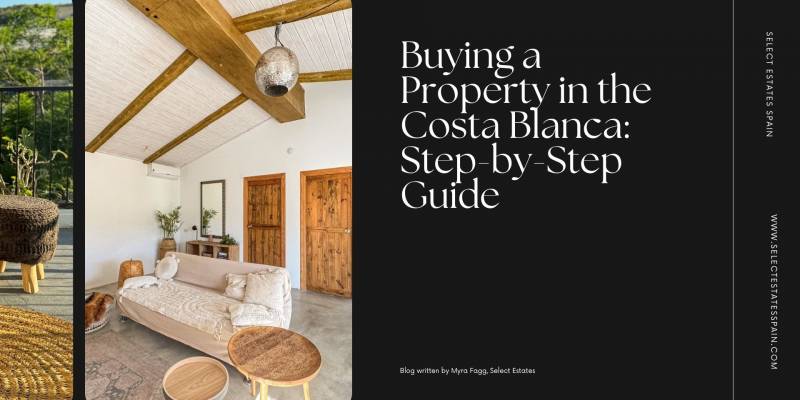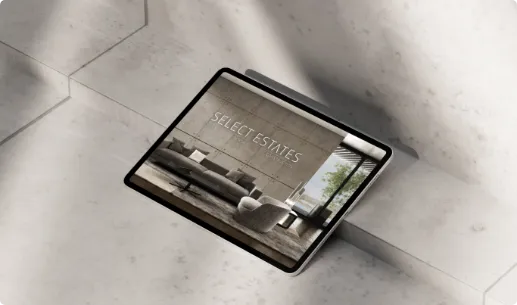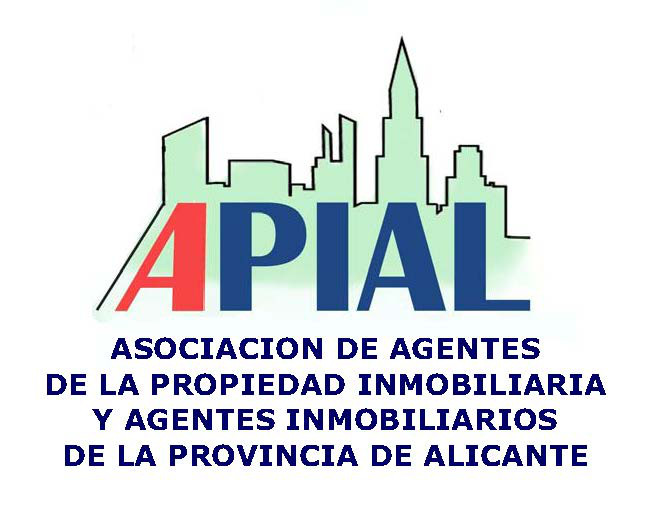Buying a Property in the Costa Blanca: Step-by-Step Guide

You’ve found your dream home in the Costa Blanca — now what?
The Spanish buying process can seem complex at first, but with the right guidance, it’s straightforward and secure. Whether you’re buying with cash or through a mortgage, this guide walks you through every step — from your first offer to holding the keys in your hand.
Step 1: Making an Offer
Once you’ve found a property you love, the first step is to make an offer through your estate agent.
Negotiations are common, especially for resale homes. However, due to high demand, flexibility is often limited. Once both parties agree on the price, the offer is confirmed in writing. This forms the foundation for the reservation agreement.
Tip: If you’re planning to apply for a mortgage, it’s smart to include a clause stating that the offer is “subject to legal checks and mortgage approval.”
Step 2: Reservation Agreement and Deposit
When the offer is accepted, the next step is signing a reservation contract (contrato de reserva).
A small reservation fee — usually between €3,000 and €6,000 — is paid to temporarily take the property off the market.
At this stage, your certified estate agent and/or your lawyer will begin verifying essential property details and start the paperwork.
Step 3: Due Diligence and Legal Checks
Before signing the main purchase contract, several legal checks must be completed.
Your certified real estate agent will typically request key documents, such as the Nota Simple (land registry extract), proof of ownership, and information about debts or charges on the property.
Your lawyer then performs a detailed review to ensure:
- Ownership is correct
- The property is legal and properly registered
- There are no outstanding community fees, taxes, or mortgages
- There are no municipal claims or fines
- The energy certificate and certificate of occupancy are in place
This step ensures you know exactly what you’re buying before you commit financially.
Step 4: Bank Valuation (for Mortgage Buyers)
If you’re applying for a mortgage, the bank will order an official property valuation (tasación).
This is carried out by an independent valuer approved by the bank. The valuation determines the property’s market value and how much the bank can lend — usually around 60–70% for non-residents.
The valuation typically costs between €300 and €600 and is paid by the buyer. It’s recommended to complete this step before signing the Contrato de Arras, to ensure financing is secured.
Step 5: Signing the Private Purchase Contract (Contrato de Arras)
The Contrato de Arras is the official private purchase contract between the buyer and the seller. It includes all key terms — the price, completion date, and conditions of sale.
At this stage, the buyer pays a deposit of around 10% of the total price (minus any reservation fee already paid).
If the buyer withdraws without legal justification, they lose their deposit. If the seller withdraws, they must return double the amount received.
This contract offers protection for both sides and sets a clear path to completion.
Step 6A: Completion for Cash Buyers
Once all legal checks are completed and a completion date is agreed, the next step is signing the Title Deed (Escritura de Compraventa) at the notary’s office.
Both parties — or their legal representatives — attend the appointment, where the sale is made official.
The buyer transfers the remaining balance, and the notary registers the transaction.
After completion:
- The buyer pays the purchase tax (10% ITP for resale properties, or 10% IVA plus 1.5% AJD for new builds).
- Notary and registration fees are settled.
- The deed is registered in the buyer’s name in the Land Registry (Registro de la Propiedad).
Step 6B: Completion for Mortgage Buyers
If purchasing with a mortgage, both the mortgage deed and the property deed are signed at the notary, often during the same appointment.
The bank representative attends and pays the seller directly once all documents are verified.
Non-resident buyers can usually borrow up to 70% of the property value. It’s best to start the mortgage process as early as possible since approvals can take several weeks.
Step 7: After the Purchase
After completion, your lawyer, gestor, or real estate agent will typically handle:
- Payment of taxes and registration of the deed
- Transferring utilities (electricity, water, internet) into your name
- Ensuring community fees are up to date
If you’re a non-resident, you’ll also need to appoint a fiscal representative in Spain to manage your annual property and income tax filings.
Step 8: Enjoy Your New Costa Blanca Home
Congratulations — you now officially own a property in Spain!
Whether it’s a holiday home, permanent residence, or investment, you can now start settling in and enjoying life under the Mediterranean sun.
Many buyers open a local bank account, arrange home insurance, and connect with local communities in towns such as Altea, Calpe, Moraira, or Benidorm.
Typical Purchase Costs in the Costa Blanca
When buying property in the Costa Blanca, you should expect to pay between 11% and 13% on top of the purchase price to cover taxes and legal fees.
Here’s a breakdown of the main costs:
- Purchase tax (resale properties): 10% ITP
- Purchase tax (new builds): 10% IVA plus 1.5% AJD
- Notary and Land Registry fees: usually between €1,000 and €2,000
- Legal fees: around 1% of the purchase price
- Valuation fee (if applying for a mortgage): typically between €300 and €600
- Mortgage setup costs (if applicable): approximately 1–1.5% depending on the bank
These are average figures and may vary slightly depending on the region, property value, and individual circumstances.











